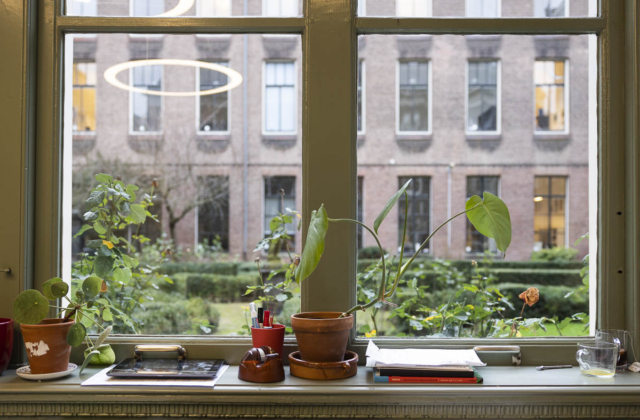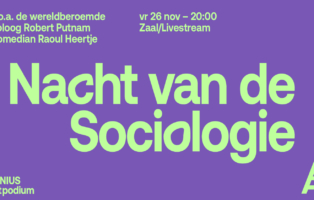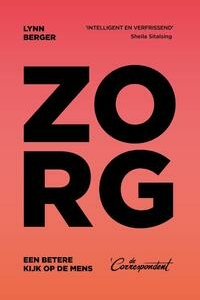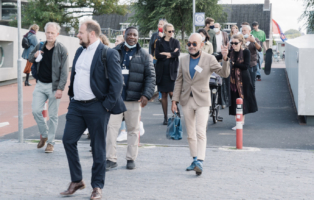September 2021
The room is tall and bright and has a large window. It looks out on a courtyard: lawns lined with hedges; blossoming rose bushes. At the centre of the garden is baby Athena, with a helmet on her head and a comical arm jauntily akimbo at her fleshy side. There’s a tree in front of the window; I look out on its crown, and the foliage is green.
It’s something I’ve always enjoyed at the start of an academic year – the fact that it’s warm, sunny and green when you start, but you know that by the end of term the branches will be bare, and night will fall early. The fact that you know that’s how it’s going to be but can’t yet imagine it. Just as I can’t yet imagine that in five months’ time, at the end of my residency at the Netherlands Institute for Advanced Study (NIAS), I’ll have finished a first draft of my new book.
NIAS was established in 1971 with the aim of being a kind of sanctuary, a place where academics don’t need to teach for a while, or publish any articles, or assess anyone else’s work – in short where they don’t have to do anything other than follow their own curiosity.
That curiosity is probably the reason they became academics in the first place, but because an academic career these days is one long succession of hoops to jump through, little comes of reflection for reflection’s sake. Enter NIAS, which has a second aim as well, namely to promote interdisciplinary cross-pollination. Bringing academics from different disciplines together means room for new insights that transcend the rigid frameworks of any classic field of study.
‘Just like academy, journalism doesn’t make it easy to reflect for reflection’s sake, to zoom out, to mull over a subject for a long time.’
Every year the institute welcomes around fifty academics from the social sciences and the humanities. They come from all over the world and are given a room to work in, a hot meal every day, and kindred spirits with whom to exchange ideas. There’s also room for non-academics: writers, artists and journalists.
This time round I’m the journalist in residence, thanks to the Fonds Bijzondere Journalistieke Projecten. My plan is to get a book off the ground about care – about how care is both indispensable and invisible, and about what you see if you look, really look, at care.
I’ve written a lot on the subject over the past two years, in stories, essays and interviews, but I never found the time to bring all those insights together in a book. Just like academy, journalism doesn’t make it easy to reflect for reflection’s sake, to zoom out, to mull over a subject for a long time. There’s hardly anywhere where such a thing is easy, I suspect – except at NIAS.
I’ve never had a room of my own before. With a door I can shut, a window I can stare out of for as long as I like, a bookcase that I fill on day one with a considerable stock of books. I think my predictable thoughts: ‘Virginia Woolf would nod in agreement, and now it’s up to me. How hard can it be?
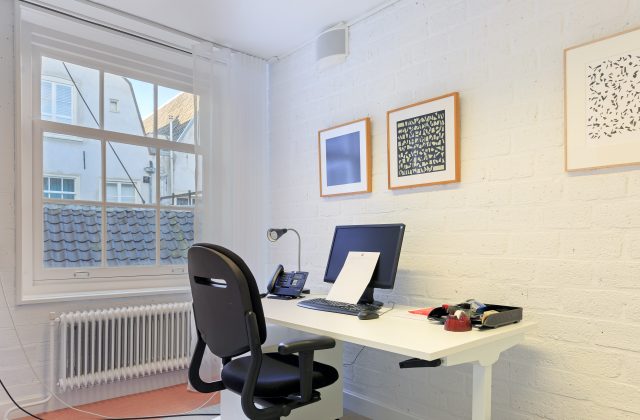
October 2021
Incredibly hard of course!
Or, as the writer-in-residence puts it when it’s his turn to lead the Thursday afternoon seminar (every week a fellow presents their work, followed by feedback from all those present): ‘Writing is like swimming in a dark, cold sea, without being able to see the horizon, without any idea of when you’ll be finished.’
The other fellows and I nod: we know exactly what he means.
We’re almost halfway through the term and everyone seems to be wrestling with that dark, cold sea in their own particular way. As for me, I find myself putting off the writing and reading instead – which is very easy, what with that library in the attic where you can request any book you want.
‘Perhaps,’ it’s time to stop reading and just start writing,’ the academic director tells me when I visit her in her office. ‘The more you read, the more you’re going to think that everything has been said already, and that there’s no need at all for a new book.’
‘Sounds great to me,’ I say. ‘Then I can publish a reading list instead of a book.’
‘Yes,’ she says. ‘Just a really wonderful syllabus.’
‘Yes!’
Laughter ensues.
NIAS doesn’t require any specific output, doesn’t set deadlines or tell us what to do, doesn’t get angry if we change our goal.
November 2021
The American anthropologist David Graeber once observed that parents, by caring for their children, enable their children to do whatever it is they want to do. To get lost in activities with no other goal than the activity itself, to follow their curiosity – in short, to play. And that, Graeber said, is actually what care does: it makes play possible.
In the tall, bright room I watch a recording of Graeber saying this, and it occurs to me that NIAS does the exact same thing: it cares for us fellows, so that we can play. So that we can reflect for reflection’s sake, read for reading’s sake, without any predetermined goal or plan.
Of course many of us do have a goal or plan – we want to write books, grant applications or articles. And often what we do here doesn’t feel like play at all, but like work – or, worse, like swimming in a dark, cold sea.
But we’ve impose those targets on ourselves. NIAS doesn’t require any specific output, doesn’t set deadlines or tell us what to do, doesn’t get angry if we change our goal, as several of us will do in course of the term. It gives us food and shelter and ensures we happen upon each other, thereby creating the preconditions for play.
The academic director, in our conversation, listened and empathized and made suggestions – perhaps it’s time to stop reading – but didn’t impose anything on me. Just as a good carer doesn’t impose on the person cared for, but instead empathizes and assists, so that ultimately they can do what they find important, what they wish to do.
When, after two months of reading, I finally begin to write, I realize that if you have to swim in a dark, cold sea, there are few finer places to do so than at NIAS. Shared misery helps, as do the inspiration and consolation offered by the staff and other fellows. But what helps even more is the tremendously caring approach. As such it teaches me something about care, something I can write about.
And so every morning I come to the tall room, greet the tree at the window, sit down, and write.
And every evening when I leave again, it’s dark outside.
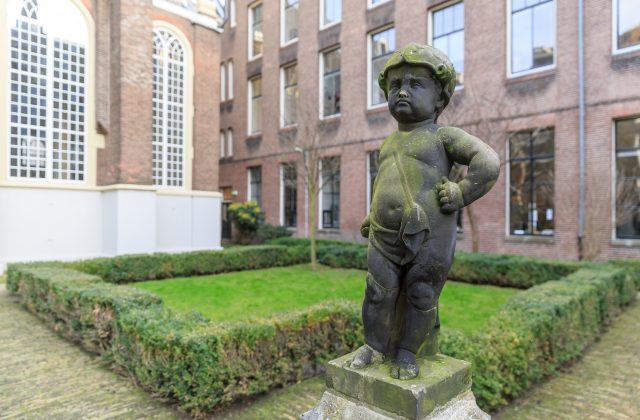
January 2022
It’s cold but sunny too and the room is bright. The bookcase is empty again – yesterday I took my books home with me – and the space feels hollow, like a house just before you move out. It’s the last day of my residency, and I’m editing the last chapter of the first draft of my book.
How exactly this first draft came into existence is a mystery, something already hard to remember, hard to imagine. Just like that I find it hard to remember how green it was outside, and how warm, when I started five months ago. Doesn’t matter; here it is. I send the whole lot off to my editor. Then I wave to the tree outside the window, which is completely bare now; I wave to baby Athena, who hasn’t changed at all, and then I go home.
About Lynn Berger
Lynn Berger isjournalist and writer based in Amsterdam, the Netherlands. As the Care Correspondent at online journalism platform De Correspondent, she covers care in the broadest sense, from professional healthcare to the most intimate forms of informal care. Her book Care: A better look at humanity came out in Dutch in July 2022. Her first book, Second Thoughts: On Having and Being a Second Child, was published in the US and the UK in April 2021.
Lynn is an alum of the Fulbright Scholarship Program, and from 2006-2012 she studied at Columbia University, where she pursued a Ph.D. at the Journalism School.
Interested in applying?
Would you like to spend five months undisturbed – although as anything but a hermit – working on your journalistic project in an office of your own in Amsterdam? Any time on or before 15 March 2023 you can apply for a NIAS journalist-in-residence subsidy for the autumn of 2023 or the spring of 2024.
